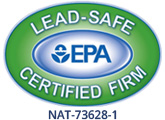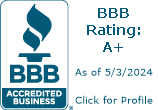Can Bath Bombs Clog Your Plumbing?
 After a long and hectic day, some people like to unwind with a bubble bath. Adding a bath bomb to the warm water adds fragrance and moisturizing ingredients to make the experience even more luxurious.
After a long and hectic day, some people like to unwind with a bubble bath. Adding a bath bomb to the warm water adds fragrance and moisturizing ingredients to make the experience even more luxurious.
Yet due to how bath bombs are made, they can potentially clog your plumbing, resulting in backups that require professional work. Here’s what you should know before using one.
What Are Bath Bombs?
Seen as a more upscale alternative to bubble bath, bath bombs are typically made with a combination of salts, scents for fragrance and oil to hold it all together. Baking soda may also be added.
The combination helps soothe sore, tired muscles while surrounding you with an invigorating scent. However, a bath bomb adds variables that are not ideal for your plumbing, including cocoa butter, essential oils and cornstarch. Larger particles, including glitter and pieces of flower petals, may also be part of the formula.
Unfortunately, these substances don’t dissolve once the water goes down the drain and may stick to the plumbing pipes. The result not only causes drainage to be sluggish, but can also hold onto hair and soap, contributing to a major clog.
Issues with Bath Bombs
Considering their composition, bath bombs are not ideal for your plumbing for the following reasons:
- Epsom salts don’t always dissolve fully in the bathwater. When you finish and water flows down the drain, these large particles can get caught in the pipe, particularly if a clog is already present.
- Oils can clog the bathtub drain. As the most significant issue, oils solidify in cold temperatures. At that point, they get stuck inside your plumbing, reducing water flow and holding onto other particles, like hair and salts from the bath.
- Non-dissolvable particles aren’t going to flow down the drain. Instead, they’ll combine with the oil and anything else already there to block your pipes even more.
- Bath bombs can potentially affect your septic system. Synthetic and non-dissolvable ingredients can gather in the tank, restricting the filters contributing to slow drainage or a sewage backup. Eventually, you’ll start to see these effects among other plumbing-based systems in your household, including your sink and toilet.
- If you own a hot tub or Jacuzzi, a bath bomb can clog the jets and hoses, preventing it from working properly. In some cases, any non-dissolvable particles can damage the jets.
How to Prevent Clogs From Bath Bombs
If you’re still interested in using bath bombs for the spa-like experience, you need to add a barrier to prevent the non-dissolvable particles from heading down the drain. To do this, there are a few options:
- Use a nylon sock or set of pantyhose to hold the bath bomb once it’s in the water. The material is porous enough that the Epsom salts and fragrance can disperse while holding onto glitter, flower petals and cornstarch.
- Add a fine mesh net over your drain, ideally with a finer material on top to catch all particles.
- Clean the drain immediately after using the bath bomb. You can pour hot water mixed with one cup vinegar and one cup baking soda down the drain. This is preferred to using corrosive and environmentally damaging drain cleaners to break up oil and fats.
Are you a regular bath bomb user who’s now experiencing plumbing issues? For problems with your bathtub or septic system, work with MJ Fahy & Sons to thoroughly examine and unclog your home’s plumbing. To learn more, contact us today.




